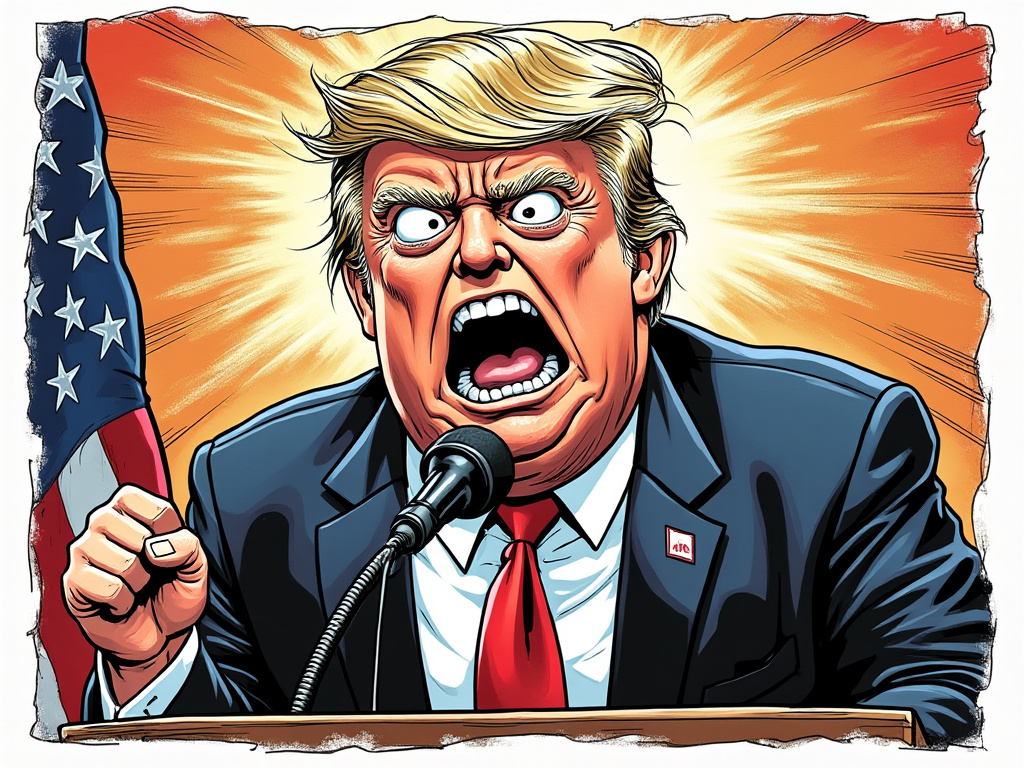In recent months, former President Donald Trump's cognitive state has become a subject of increasing scrutiny. Experts in psychology, neurology, and linguistics have observed notable changes in Trump's speech patterns and behavior, raising questions about his mental acuity as he campaigns to return to the White House.
Comparing Trump's speeches from 2017 to 2024, researchers have discovered that he now uses shorter sentences, confuses word order more frequently, repeats words and topics, and often goes on tangents1. Social psychologist James Pennebaker's statistical analysis of Trump's speech transcripts revealed an increase in "all-or-nothing thinking," with more frequent use of words like "always," "never," and "completely"1. Pennebaker also found that Trump's speeches score unusually low on a metric for analytic thinking, with most presidents scoring between 60 and 70, while Trump's speeches range from 10 to 241.
Trump's public appearances have also raised concerns. During a town hall event in Philadelphia, he unexpectedly spent 30 minutes playing music and engaging in unusual behavior2. Harry Segal, a senior lecturer in Psychology at Cornell University, described this incident as "yet another sign of his accelerating cognitive decline"2. Trump has also been observed mixing up names, seemingly forgetting recent events, and fumbling during speeches1.
The former president's tendency to avoid events requiring spontaneous responses has further fueled speculation. He refused to participate in a second presidential debate with Candidate Harris and abruptly canceled a 60 Minutes interview2. He has also canceled interviews with NBC News and CNBC's "Squawk Box"3 leading many to believe that his cognitive decline may be worsening daily. These cancellations, combined with his increased impulsivity, are seen by some experts as potential indicators of cognitive decline and generally waning mental health and acuity.
It is also worth noting the stark contrast in media coverage between Trump's and President Joe Biden's cognitive states. While Biden faced intense scrutiny and wall-to-wall coverage regarding his age and mental acuity, culminating in his withdrawal from the 2024 election, the media has been comparatively slower to address similar concerns about Trump5 and downright silent in some cases. This discrepancy has led to accusations of hypocrisy, as both men exhibit what experts describe as potential signs of cognitive decline, yet the coverage has been markedly uneven.
Clinical psychologist John Michaelis, while cautioning against providing a diagnosis without proper examination, stated that Trump's speaking style shows "reasonable evidence suggestive of forms of dementia"4. The reduction in complexity of sentences and vocabulary, according to Michaelis, paints "a certain picture of cognitive diminishment[sic]"4.
As the 2024 election approaches, these observations about Trump's cognitive state have gained increased attention. However, it's crucial to approach this topic with caution. While the evidence presented may be suggestive, it is not conclusive, and only a thorough medical evaluation could provide definitive answers about Trump's cognitive state. Nonetheless, the growing body of expert observations and analyses raises important questions about the former president's fitness for office and the media's role in addressing such concerns equitably across all candidates.
Additional Reading:
- Transcript Exposes Alarming New Signs in Trump's Mental Decline
- Donal Trump's Cognitive Impairment
- 2024 Election: Trump's Mental Acuity
Citations:
